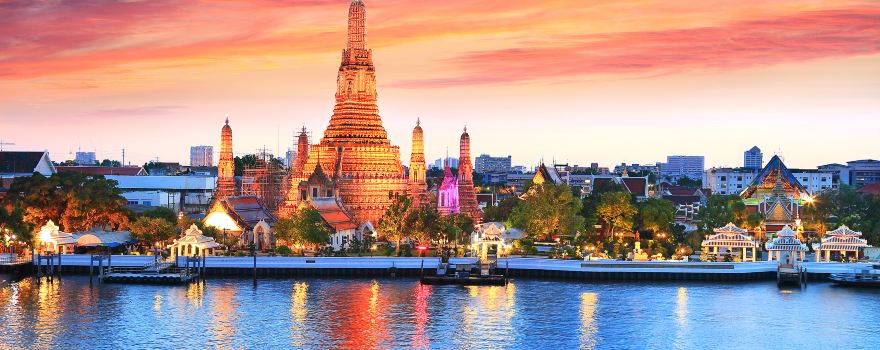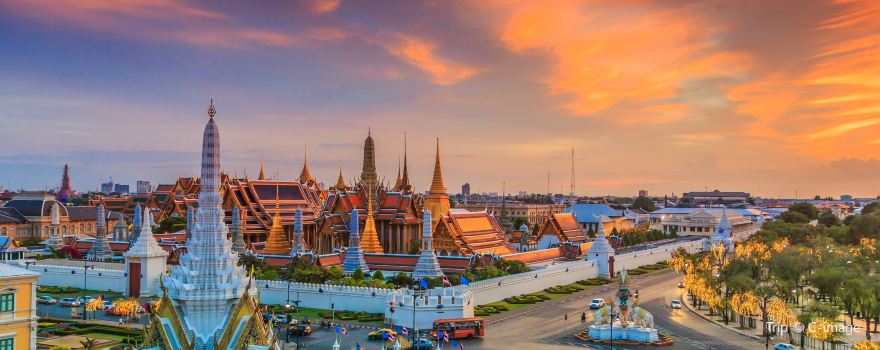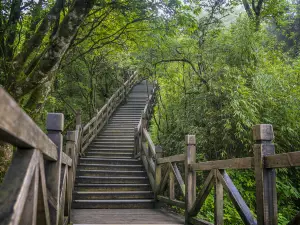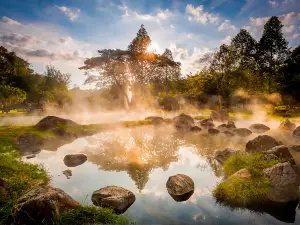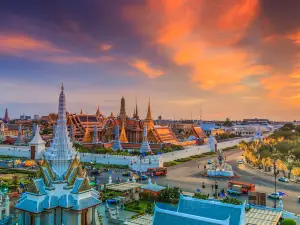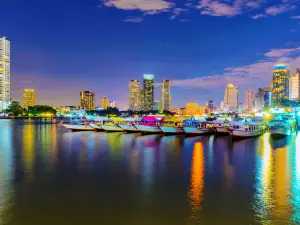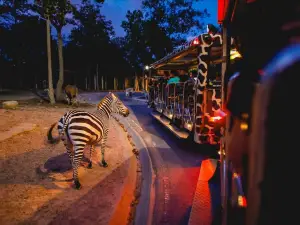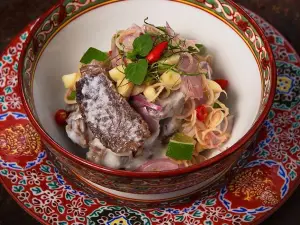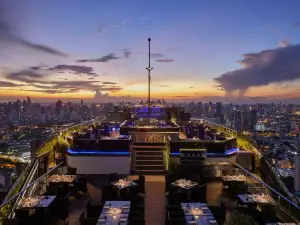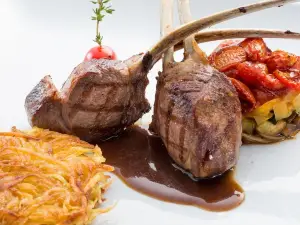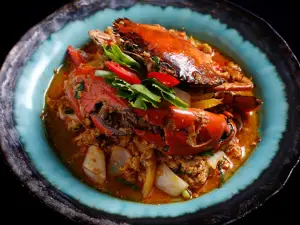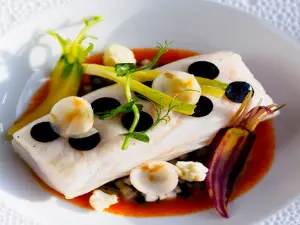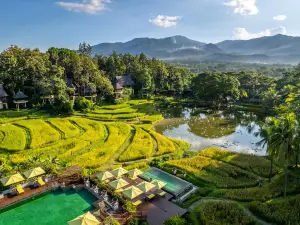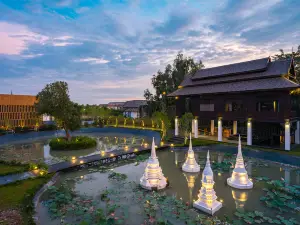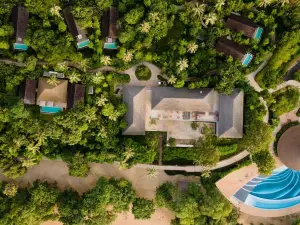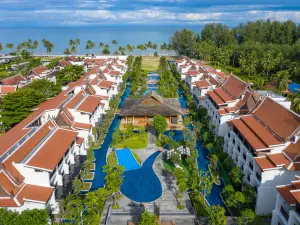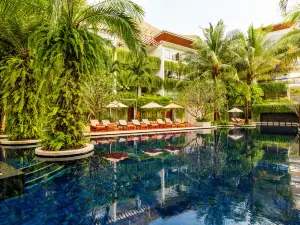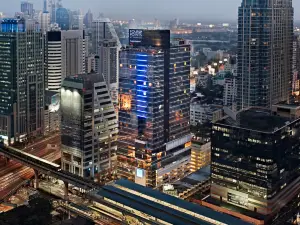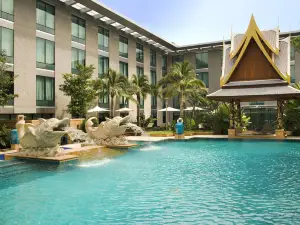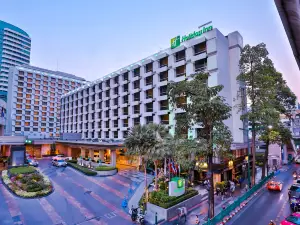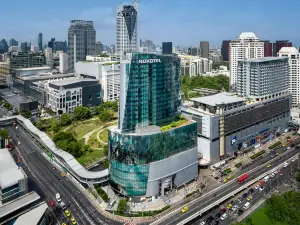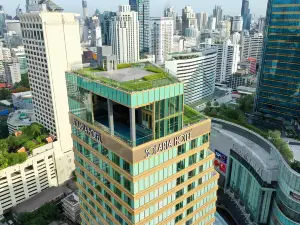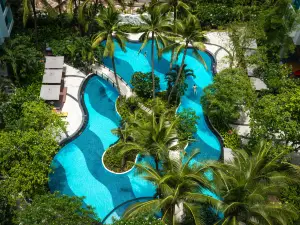2025 Thailand Travel Guide: Weather, Transportation, Popular Attractions, and Everything You Need (Updated 2025 4)
About Thailand
Recommended trip: 7–12 day(s)
Recommended trip: 7–12 day(s)Thailand Local Experiences Map
Thailand Local Travel Guide 2025
Thailand Brief Guide
Thailand, a vibrant and culturally diverse country, offers an unparalleled travel experience that engages the senses and warms the spirit. From bustling urban landscapes in Bangkok to serene beaches and ancient temples, the country blends the old and new, steeped in rich tradition while vibrantly modern. Moreover, Thai culture is rooted in Theravada Buddhism, which shapes its national ethos of politeness, respect, and a community-centered way of life. Art, dance, and religious practices contribute to the profound spiritual aura that permeates many aspects of daily life. Thailand is a paradise for food lovers. Whether dining at street-side vendors or upscale restaurants, savoring dishes like pad thai, or exploring local markets for fresh seafood, the food in Thailand is robust and inviting.
Thailand Best Time To Visit
The best time to visit Thailand is during the cool and dry season from November to early April, when temperatures are more comfortable for exploring the diverse landscapes and culture of the country. This period provides optimal conditions for visiting the islands, beaches, and cultural sites without heavy rainfall and extreme heat. The clear weather facilitates outdoor activities like diving and snorkeling, particularly on the southwest coast, making it a prime time for water sports enthusiasts.
Thailand Must-try Local Experiences
1. Discover the Majesty of Thai Temples Visit iconic temples like Wat Arun, Wat Phra Kaew, and Wat Pho to experience Thailand's spiritual heart and marvel at their stunning architecture. 2. Explore the Enchanting Grand Palace Wander through the opulent halls of the Grand Palace and The Temple of the Emerald Buddha, Bangkok's most famous landmarks, and learn about their rich history. 3. Embark on a Journey to Floating Markets Experience the vibrant atmosphere of floating markets like Damnoen Saduak and Amphawa, where vendors sell fresh produce and street food from boats. 4. Unwind on Pristine Beaches Relax on Thailand's world-renowned beaches like Phuket, Koh Samui, Koh Lanta, and Koh Tao, enjoying activities like swimming, snorkeling, and diving. 5. Discover the Ancient City of Ayutthaya Visit Ayutthaya, a UNESCO World Heritage Site, to explore ancient temples and ruins that offer a glimpse into Thailand's rich history. 6. Trek in Chiang Mai's Mountains Explore the lush mountains and trekking opportunities in Chiang Mai, including Doi Inthanon National Park and visits to hill tribes. 7. Get a Traditional Thai Massage Indulge in a relaxing Thai massage that combines acupressure, stretching, and gentle rocking motions to relieve muscle tension. 8. Find Treasures at Night Markets Experience Thailand's night markets like Chiang Mai Night Bazaar and Asiatique The Riverfront, offering unique souvenirs, clothing, and street food. 9. Discover the Art of Muay Thai Experience the thrill of Muay Thai by attending a live match or taking a training session to learn the basic techniques of this martial art. 10. Get Lost in the Chatuchak Weekend Market Explore Chatuchak Weekend Market in Bangkok, one of the world's largest outdoor markets, offering everything from clothing to antiques. 11. Experience Yi Peng and Loy Krathong Celebrate Loy Krathong by releasing lanterns onto rivers, symbolizing the release of negativity, and enjoy the Yi Peng Festival in Chiang Mai, where thousands of sky lanterns are released during the full moon. 12. Dive into the World of Thai Flavors Enjoy dishes like Pad Thai, green curry, and Tom Yum soup, alongside fresh tropical fruits like mango, durian, and mangosteen for an authentic taste of Thailand. 13. Take a Longtail Boat Trip Embark on a scenic longtail boat trip along the Chao Phraya River or through floating markets, capturing memorable photos from the water.
Thailand Travel Tips
1. Be Prepared for Monsoon Season: Thailand's monsoon season runs from May to October. Heavy rains can affect travel plans, so pack appropriate rain gear and plan for possible delays. 2. Dress Modestly at Temples: When visiting temples, wear modest clothing that covers your shoulders and knees. Women should opt for long skirts or pants, and men should wear trousers or knee-length shorts. Avoid tight or revealing clothing. Slip-on shoes are recommended as you will need to remove them. Some temples may provide sarongs or robes if your attire is deemed inappropriate. 3. Royal Family Respect: Show utmost respect for the Thai royal family. Avoid any negative comments or gestures related to royalty, as it's considered a serious offense and can lead to legal consequences. 4. Beware of Scams: Be cautious of common scams targeting tourists, such as overpriced tuk-tuk rides, fake gem shops, and jet ski scams. Always use reputable services, verify prices beforehand, and be wary of unsolicited advice about closed attractions. Familiarize yourself with Thai baht to avoid wrong change scams. 5. Street Food Safety: While Thai street food is delicious, choose vendors with high turnover and good hygiene practices. Avoid raw or undercooked meats and unpasteurized dairy products. Opt for food cooked fresh and served hot. Observe vendors for cleanliness and ensure ingredients are fresh. Use bottled water and avoid ice. 6. Mosquito Protection: Use mosquito repellent with DEET, Picaridin, or IR3535 and wear long sleeves, especially in rural areas or during rainy season, to protect against mosquito-borne diseases like dengue fever. Use mosquito nets, fans, and avoid strong scents to reduce bites. 7. Drone Usage Requires Permission: Using drones in Thailand requires permission from the Civil Aviation Authority and the National Broadcasting and Telecommunications Commission. Ensure you have the necessary permits and insurance to avoid fines or confiscation of your equipment. 8. Emergency Contact Numbers: Keep emergency numbers handy: 191 (general), 1669 (medical), and 1155 (Tourist Police). The "Thailand Tourist Police" app also allows direct reporting. Trip.com is assisting customers affected by the Myanmar earthquake (28 March 2025) with bookings. Customers can check the status of their bookings on our website or app, where they can find updated information and options to modify or cancel their reservation. Stay safe!
Thailand Transportation
To visit Thailand, flying offers the quickest and most convenient access with international flights arriving primarily in Bangkok from global cities. For a more scenic route, consider the international train services linking Thailand with Kuala Lumpur and Singapore. Alternatively, accessing Thailand by road includes connections from neighboring countries like Malaysia and Singapore.
Thailand Best cities to visit
Located on Thailand’s eastern Gulf Coast, Pattaya is known as the 'Hawaii of the East' for its abundant sunshine, beautiful beaches and delicious seafood. The coastline runs 15 kilometers along crystal clear water, a popular attraction for sunbathers and beach enthusiasts from all over the world. Water sports such as water skiing, parasailing and diving are all prevalent attractions here that every visitor should experience. After nightfall, the city plays host to a variety of performances, of which the Tiffany Show is one of the most spectacular, with gorgeous ladyboys and equally brilliant acts. The streets are full of dance halls, night clubs and bars with flashing neon signs and blaring pop music.
Thailand Useful Guide
When traveling in Thailand, be vigilant of natural disasters, such as flooding and tsunamis, and familiarize yourself with local emergency protocols and evacuation routes. It's crucial to adhere to traffic rules and be cautious when driving as road conditions can vary and include congested urban roads and narrow rural pathways. Always have essential emergency contact numbers accessible. You can dial 191 for general emergencies or 1669 for medical emergencies, which provide assistance even if you're not fluent in Thai. Keep the Tourist Police number, 1155, handy for additional support. In case of any health emergencies, promptly seek professional help. Being aware of these safety measures can significantly impact your experience and security while in Thailand.
Trip.Best: Thailand
Popular Destinations
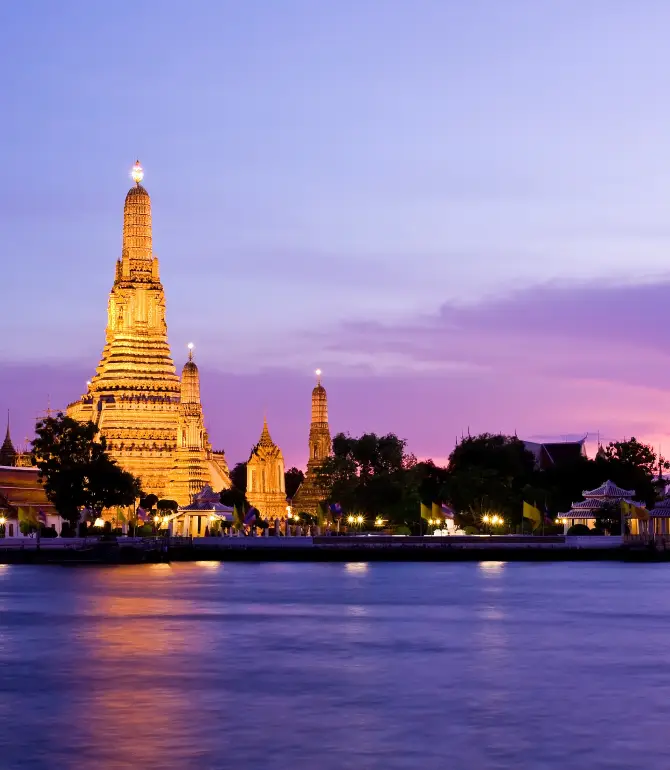
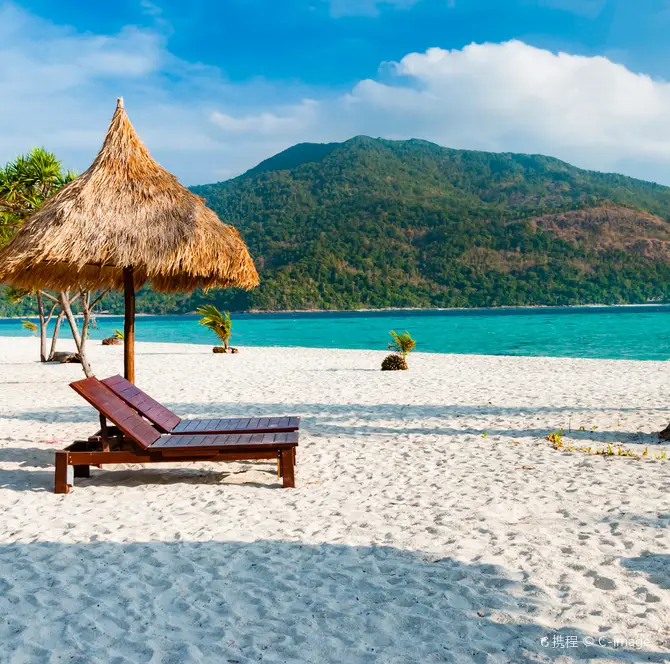
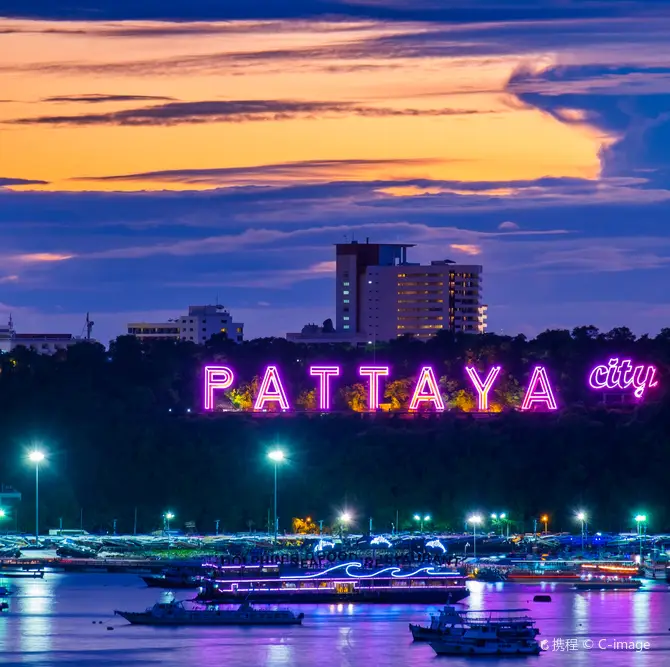

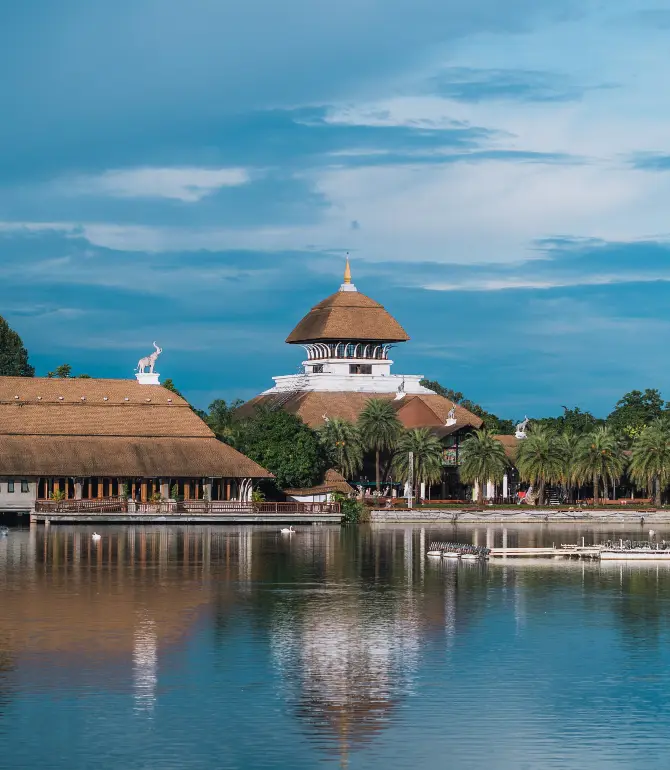
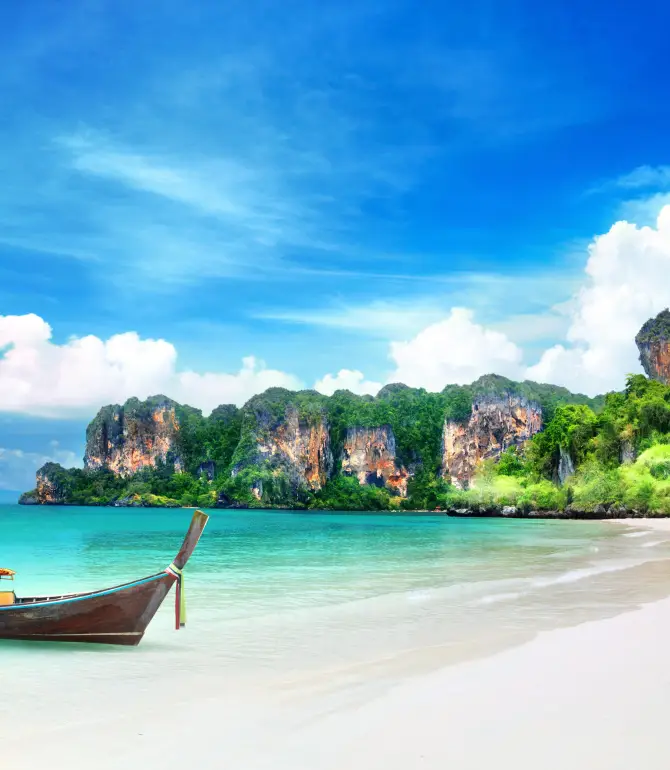


Things to do in Thailand
What to Do
SEA LIFE Bangkok Ocean World
Safari World Bangkok
Elephant Care Park Nai Dee Phuket
What to Eat
Thailand Moments: Through Travelers' Eyes

Thailand's Most Popular Phuket Hotel - Sinae❤

Shopping at Bangkok’s most popular Fashion Mall!

Amazing dragon ladder in Thailand

6 Days Visa-Free in Koh Samui, Thailand: No More Worries

I thought Thailand was beautiful enough! Until I went to Koh Lipe...

5 visa-free countries for first-time travelers.

Phuket | This is the hotel of a lifetime for so many people.

The Most Underrated Hotel in Bangkok.
Best of Thailand
Site Operator: Trip.com Travel Singapore Pte. Ltd.
